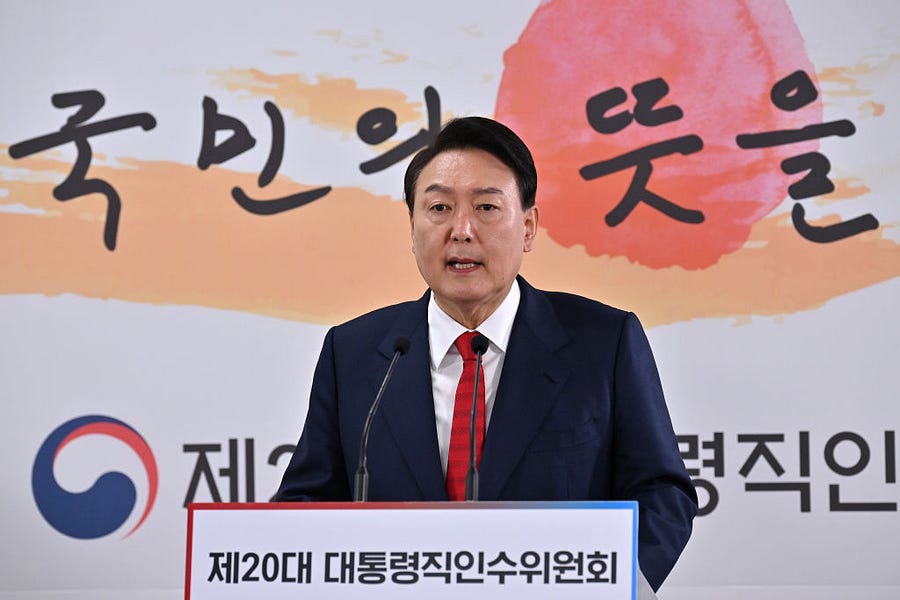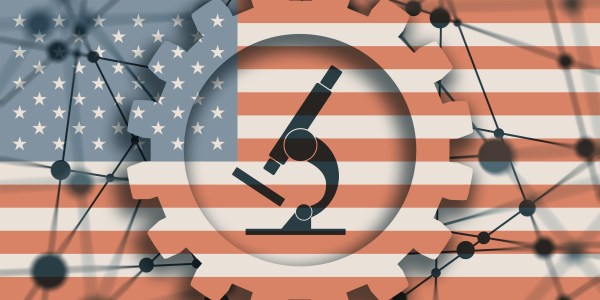South Korea’s new president, Yoon Suk-yeol, was inaugurated today and has as his main goal remaking Seoul into a global player consistent with its position as a top 10 world economy. But issues closer to home—the simmering feud with Japan, China’s economic coercion, and North Korea’s long-held desire to subjugate the South Korean people—will dominate his presidency.
Yoon was elected to a single five-year term in March by a narrow margin, less than 1 percent, over the ruling party’s candidate Lee Jae-myung. Consistent with his desire to elevate South Korea’s international standing, Yoon spoke out against Russia’s invasion of Ukraine. He emphasized that Seoul should enhance its role in the pressure campaign against Russia but is unlikely to provide military equipment to Ukraine. Yoon noted that South Korea has provided $10 million in humanitarian aid to Ukraine but argued that “we need to provide more such aid.”
But just as all politics are local, Yoon will likely spend a majority of his first year in office focused on issues that more directly affect South Korea. This should start with repairing relations with Japan, which have been fractured overlingering resentments related to Japan’s occupation of Korea in the first half of the 20th century. In 2018, South Korea’s Supreme Court ordered that two Japanese companies compensate workers who were treated as forced laborers during World War II, a matter that Japan says was settled by a 1965 treaty. Yoon affirmed that he is focused on a “future-oriented” relationship with Japan that benefits South Korean people and companies. Japanese Prime Minister Fumio Kishida said in March after Yoon’s election that “Japan-South Korea relations are in a very severe condition, and we cannot leave them as they are.”
Both leaders are trying to reduce tensions in the relationship, and Japaneses Foreign Minister Yoshimasa Hayashi was scheduled to attend Yoon’s inauguration, marking the first time since 2018 that a Japanese foreign minister has visited South Korea. Repairing the Seoul-Tokyo and trilateral relationship should be President oBiden’s top priority when he travels to South Korea and Japan from May 20-24 for separate meetings with Yoon and Kishida.
Yoon also must navigate South Korea’s relationship with Beijing within the context of the tense U.S.-China relationship. Xi Jinping objected to Seoul’s 2017 decision to deploy a U.S.-made missile defense system, the Terminal High Altitude Area Defense (THAAD), to counter North Korea’s expanding missile threat. Beijing claimed the system could be used to track its military movements. Beijing then used economic coercion against South Korean targets to secure a pledge from Yoon’s predecessor, Moon Jae-in, not to deploy additional THAAD systems.
The missile defense issue could become an irritant between Seoul and Beijing once again. North Korea has tested more missiles in 2022 than the previous two years combined, and reportedly tested a submarine-launched ballistic missile over the weekend. During the campaign, Yoon said he would reverse Moon’s pledge to not deploy additional THAADs. This could create tensions with Beijing, but Yoon’s incoming national security adviser, Kim Sung-han, in February highlighted that “The economic retaliation [from China] continues even now in some areas, but to us, [missile defense is] a matter of life and death, and China does not seem to fully understand that.”
Seoul’s relationship with the Quad, a U.S., Australia, India, and Japan group centered on Indo-Pacific issues, but unofficially focused on countering China, could inflame tensions with Beijing even if South Korea does not join the group. White House press secretary Jen Psaki last week threw cold water on South Korea joining the group, noting that “the Quad will remain the Quad.” Yoon said he is focused on working “together on vaccines, climate change and emerging technologies to create a synergy with Quad countries.”
Yoon has criticized Moon Jae-in’s singular focus on North Korea to the detriment of a global role for Seoul. But the Kim regime is an existential threat to South Korea and will dominate Yoon’s presidency. Yoon wants to focus on strengthening deterrence of North Korea’s nuclear weapons and ballistic missile programs. It is not a coincidence that after Yoon’s election the Kim regime is testing and showing off ballistic missiles and increasing its rhetoric on potential nuclear use during a military conflict. What’s more, Pyongyang could conduct its seventh nuclear test, and first since 2017, as early as this month after repairing its nuclear test site.
That presents challenges not just for Yoon but for the United States. Kim Jong-un likely sees Vladimir Putin’s unprovoked invasion of Ukraine as a possible blueprint for the Kim family’s long-held desire to subjugate South Korea. If Biden does not deter Putin from using a nuclear or chemical weapon in Ukraine, Kim will be emboldened. Yoon could question the utility of the U.S. nuclear deterrent, which could lead to discussions on whether Seoul should seek its own nuclear weapons program.
Yoon has promised a two-track approach to North Korea, offering economic incentives if Kim takes irreversible steps toward denuclearization while also promising humanitarian aid and keeping military channels open for communication. He will advocate for increasing pressure on North Korea, something the Biden administration has been unwilling to do. Yoon and Kishida will be aligned on this issue and could try to get Biden’s attention as he deals with other pressing foreign policy priorities.
While Yoon wants to increase South Korea’s global role, issues in his own backyard will consume his presidency. Biden should embrace Yoon’s election as an opportunity to shake-off his laissez-faire North Korea policy and counter the Kim regime’s goal of conquering South Korea.
Anthony Ruggiero is a senior fellow at the Foundation for Defense of Democracies (FDD), Anthony previously served in the U.S. government for more than 19 years, including as director for North Korea (2018-2019) and senior director for counterproliferation and biodefense (2019-2021) on the National Security Council. Follow Anthony on Twitter @NatSecAnthony. FDD is a Washington, D.C.-based, nonpartisan research institute focused on national security and foreign policy.






Please note that we at The Dispatch hold ourselves, our work, and our commenters to a higher standard than other places on the internet. We welcome comments that foster genuine debate or discussion—including comments critical of us or our work—but responses that include ad hominem attacks on fellow Dispatch members or are intended to stoke fear and anger may be moderated.
With your membership, you only have the ability to comment on The Morning Dispatch articles. Consider upgrading to join the conversation everywhere.